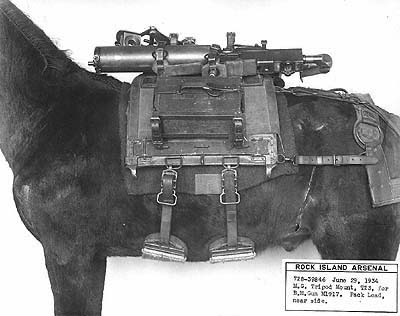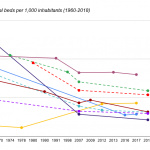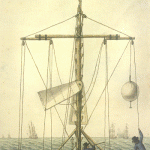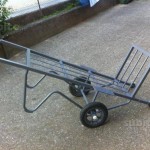Perpignan is one of 60 French towns that have struck upon a cheaper and greener way to collect household waste – ditching the dustbin lorry in favour of a horse and cart. Read. Thanks, Johan.
French Towns Swap Rubbish Trucks for Horse-Drawn Carts
Phillips, Decker and Canadian Pack Saddles
Reader BG Hearns writes: “While your link to the 1916 pack manual is of historical interest, what you ought to know is that low-tech packing has advanced considerably over that publication and anyone who wishes to pack with animals should know that there are much superior options available today. The manual describes a very difficult to use piece of equipment that is so easy to get wrong that only a few experts could ever use it properly.
What your readers ought to know is that in 1924, the US army adopted the Phillips Pack Saddle which was much simpler and easier to use. Other advances in pack saddles since then are the Decker style (more) and the Canadian saddle pack, neither of which require complex knots, both of which incorporate simple, effective new design ideas, and both of which could be easily made in a small shop. Perfect for low-tech affictionados.”
Thanks for the note, BG. I have added some more links to your comment.
Water Powered Rope Making Machine
Drawing of a water powered wire mill, taken from “The Pirotechnia” by Vannoccio Biringuccio (1540). Illustration credit. For the hand powered method, see: Lost knowledge: ropes and knots.
Update January 2015: Kurt B. writes us to say that “what you are looking at is a wire drawing machine, not a rope making machine. That is, taking a large wire and drawing it through a series of ever decreasing dies (holes in the die plate) to make the wire smaller. It is powered by water. The fellow with the rope in his hands is taking up the slack on the tongs which grip the wire. Every stroke of the wheel crank pulls the wire through the die just that amount and he takes up the slack each stroke, or tries to. Here is a guy drawing wire on a much smaller scale Home made electric jeweller wire puller https://www.youtube.com/watch?
Workers of the World Relax !
We work too hard. Thanks to Leah Temper.
Sewage, Toilets, and Nutrient Cycles for Dummies
Mathew Lippincott writes: “I read with great relish your new article on human manure. I’ve been working on a project along the same wavelength. There is a small group of people (including ourselves) here in Portland, Oregon who have really gone for humanure, and we’re organizing. Through ReCode Oregon we’re proposing code changes to allow for user-built composting toilet systems. My partner Molly and I just completed six posters on the the topic of sewage, toilets, and nutrient cycles. I hope you like them. We’re working to design composting portable toilets right now, and the lack of knowledge amongst most people on soil processes and nutrient cycles was making us crazy.”
Tom Wilson’s Monster Bikes
Monster Bikes. Via Treehugger. Previously: Macho Pedal Power.





